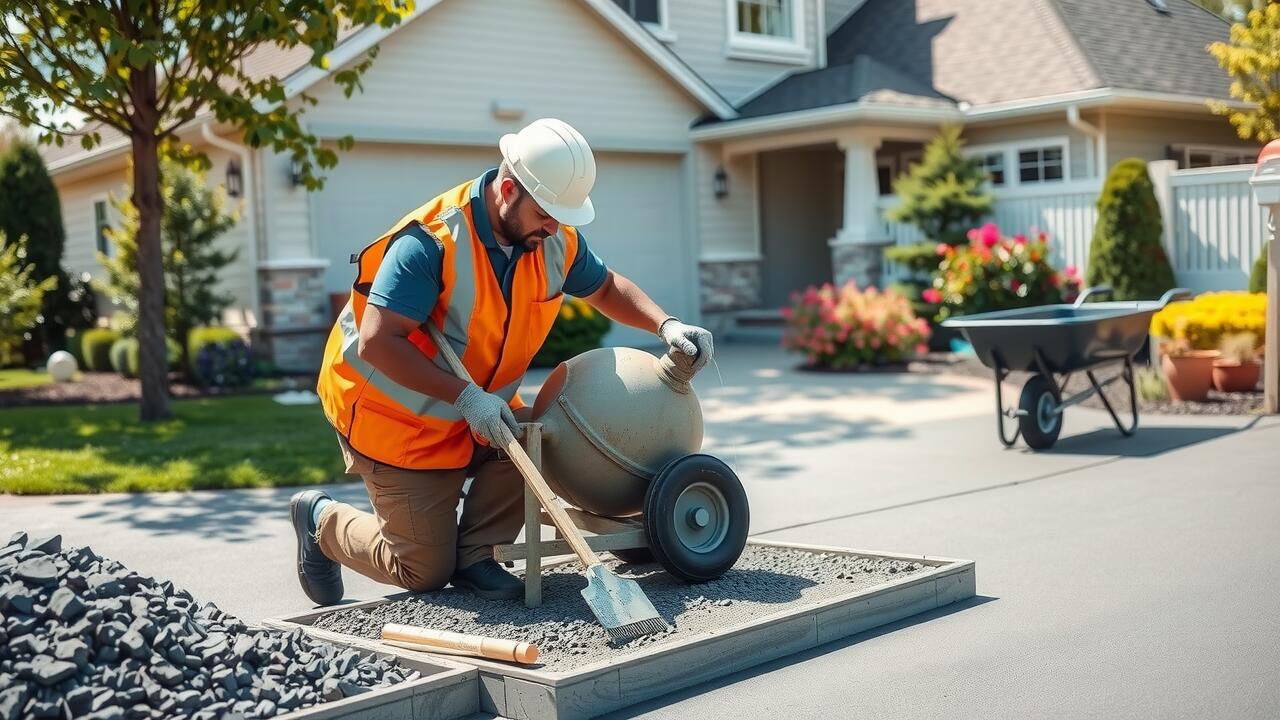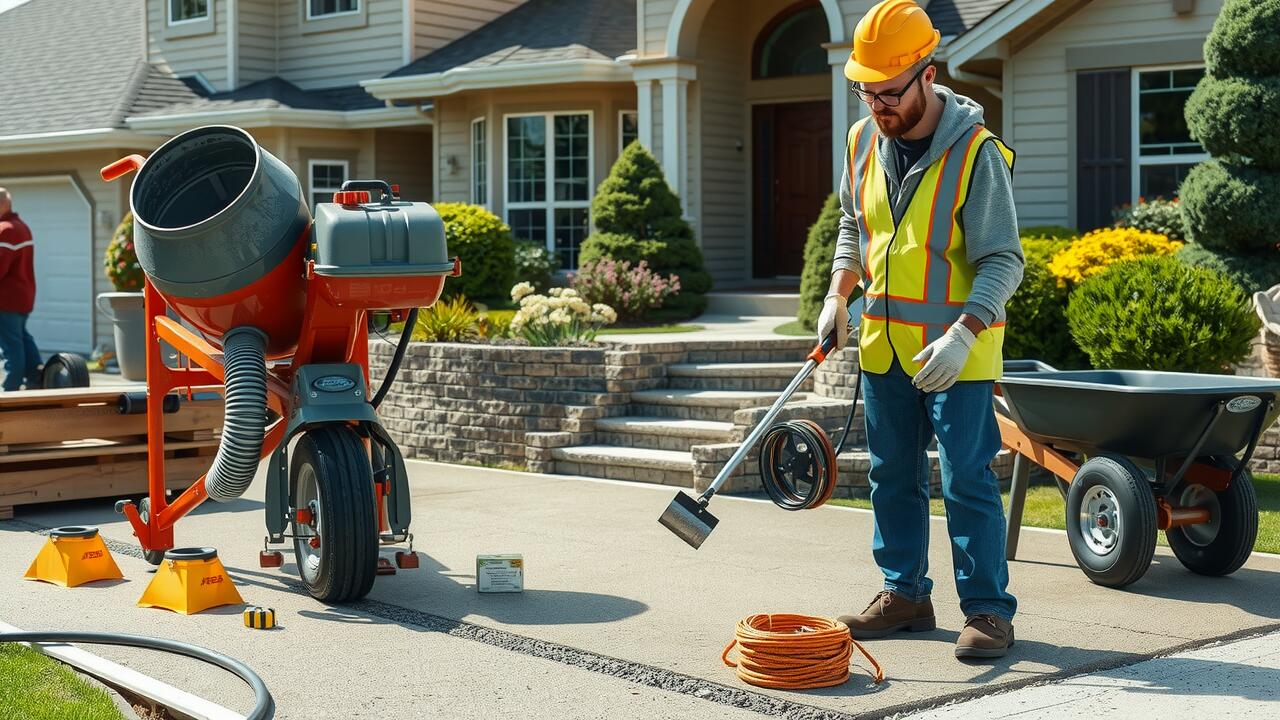
Paver Driveways
Paver driveways offer a unique blend of aesthetic appeal and functionality. Their versatility allows homeowners to choose from various patterns, colors, and materials, creating a personalized look that enhances curb appeal. These driveways can either complement traditional homes or add a modern touch to contemporary properties. The initial cost of paver driveway installation may be higher than other options, but the long-term benefits often justify the investment.
Installation is a crucial aspect of paver driveways. Proper driveway installation ensures that the pavers are set securely, reducing the likelihood of shifting or cracking over time. Homeowners can opt for a professional service or take on this project as a DIY endeavor, depending on their skills and budget. Regular maintenance, such as cleaning and re-sanding, can extend the lifespan of a paver driveway and keep it looking fresh for years.
Aesthetic Appeal and Price Breakdown
Paver driveways offer a distinctive aesthetic appeal that can enhance the overall visual appeal of a property. With a range of colors, shapes, and designs available, homeowners can create a customized look to complement their landscaping and home’s architecture. Even with lower-cost options, pavers can create a stylish and sophisticated entryway that stands out. The attractive nature of pavers often makes them a popular choice among those looking to enhance curb appeal without breaking the bank.
When it comes to the price breakdown of driveway installation, paver driveways can be an economical option depending on the materials chosen. Basic concrete pavers are generally more affordable than natural stone alternatives, allowing homeowners to prioritize their budget while still enjoying the beauty of a well-designed driveway. Installation costs will vary based on factors such as the size of the driveway and the complexity of the design. This versatility in material choices and design allows for flexibility that can fit various budget constraints.
Advantages of Choosing Budget-Friendly Materials
Choosing budget-friendly materials for driveway installation can significantly reduce overall costs while still providing effective functionality. Options such as gravel, asphalt, or concrete are often much cheaper than premium materials like pavers or sealed bricks. These economical choices not only lower material costs but can also shorten the time required for installation, making them appealing for those looking to save both money and time.
Utilizing affordable materials does not necessarily mean sacrificing quality or appearance. Many modern advancements in driveway installation materials have made it possible to achieve an attractive look without a hefty price tag. For example, decorative concrete can mimic the appearance of more expensive stones without the substantial investment, allowing homeowners to maintain an appealing aesthetic while adhering to a strict budget.
Durability and Maintenance Factors
When considering driveway installation, durability is a crucial factor to assess. Materials such as asphalt and concrete stand out for their resilience to heavy traffic and changing weather conditions. These surfaces can withstand varying temperatures without significant deterioration, making them suitable for long-lasting use. In contrast, more budget-friendly options may require more frequent repairs and maintenance.
Maintenance is another essential aspect to factor into the overall cost of driveway installation. While some materials need minimal upkeep, others may demand regular sealing, cleaning, or crack repairs to maintain their appearance and functionality. Neglecting these tasks can lead to more substantial issues over time, ultimately increasing long-term expenses. Homeowners should weigh the initial costs against potential maintenance needs to make an informed decision.
DIY vs. Professional Installation Costs
When considering driveway installation, one of the most significant factors is the cost of labor. Hiring professionals can lead to higher initial expenses, but their expertise often ensures a level of quality and longevity that might be hard to achieve on your own. Professionals have the necessary tools and experience, which can minimize mistakes and potential long-term repair costs. If you’re not familiar with driveway installation, opting for a professional might save money in the long run despite the higher upfront investment.
On the other hand, a DIY approach can significantly reduce overall costs, especially if you have access to tools and a solid understanding of the installation process. While many homeowners opt for this route to save money, it’s essential to realistically assess your skills and the time commitment involved. Errors in driveway installation can lead to structural issues that may require costly repairs or a complete redo, which could negate any savings achieved from not hiring professionals. Balancing budget and capability is crucial when deciding on the best installation method.
Evaluating Your Skills and Budget
When considering driveway installation, evaluating your skills and budget is crucial. If you possess experience in home improvement projects, you might feel confident taking on the installation yourself. However, reviewing the intricacies of the task is important. Properly laying a driveway involves more than just pouring material; it requires attention to grading, drainage, and ensuring a stable foundation to avoid future problems.
On the other hand, if your budget is tight and your skills are limited, hiring professionals can save time and ensure a quality finish. While this option may have a higher initial cost, it can prevent costly repairs that may arise from improper installations. Balancing your budget with the potential benefits of professional expertise often leads to better long-term outcomes for your property.
FAQS
What is the cheapest type of driveway to install?
The cheapest type of driveway to install is typically a gravel driveway, as it requires minimal materials and labor compared to other options like asphalt or pavers.
Are paver driveways cost-effective?
While paver driveways can be aesthetically pleasing, they may not be the most cost-effective option upfront due to higher material costs. However, they can provide long-term durability and low maintenance, which might offset initial expenses.
What budget-friendly materials can I use for my driveway?
Budget-friendly materials for driveways include gravel, crushed stone, and asphalt. These options typically require less investment compared to concrete or paver driveways.
Can I install a driveway myself to save money?
Yes, installing a driveway yourself can significantly reduce costs, especially if you choose materials like gravel. However, it’s important to assess your skill level and the complexity of the project before proceeding.
What factors should I consider when choosing a driveway material?
When choosing a driveway material, consider your budget, aesthetic preferences, local climate, durability, maintenance requirements, and whether you plan to install it yourself or hire a professional.
